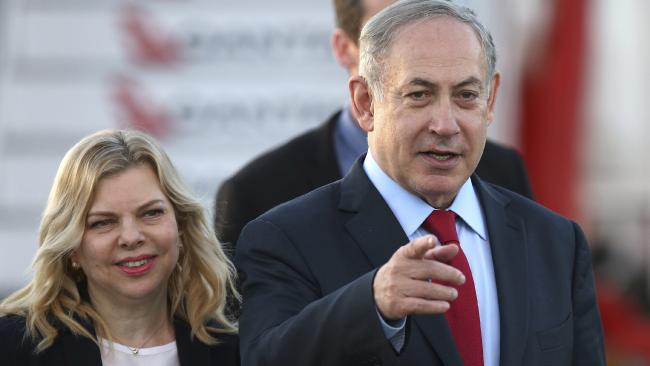IN THE MEDIA
Bibi’s visit and the ties that bind
February 22, 2017 | Colin Rubenstein

Colin Rubenstein
A version of this piece appeared in Sydney’s Daily Telegraph on Feb. 22, 2017
AS Australia prepares to welcome the first ever visit by an Israeli Prime Minister, cooperation and dialogue between our two nations have never been stronger.
It’s a record of friendship over a hundred years that few countries can match – marked by shared democratic and egalitarian values, common challenges, bustling trade and a long friendship in which both countries take great pride.
Australia was the first country to vote for the establishment of Israel at the UN and successive Australian governments have taken this relationship to new heights. While there have been some stumbles and controversies, these are dwarfed by a steady record of friendship.
Our government both backs Israel’s right to self-defence in its conflicts with terrorist groups like Hamas and Hezbollah, and regularly and rightly reaffirms that the only way to reach Israeli-Palestinian peace is through direct negotiations. Australia understands that Israel has repeatedly made genuine, far-reaching offers for peace – while the problem remains Palestinian rejectionism, incitement to violence and continued refusal to negotiate without preconditions.
This is why Prime Minister Turnbull and Foreign Minister Bishop commendably criticised the one-sided, flawed, counter-productive UN resolution 2334 – which denied Jewish links to the Western Wall and the Jewish Quarter of Jerusalem’s Old City.
Prime Minister Binyamin Netanyahu’s visit brings with it an opportunity to grow our ties closer – and is especially apt given that it coincides with joint celebrations being prepared to mark the 100th anniversary of the Australian Light Horse charge at Be’er Sheva.
Australia can adapt much from Israel’s world-leading “start -up culture.”
The Australian innovation “landing pad” established in Tel Aviv is assisting Australian start-ups gain vital knowledge from one of the world’s foremost technology hubs. Meanwhile, an increase in bilateral trade delegations is also having positive results in trade and investment.
Israel has been active in exporting its technology to Asia in agriculture, industry, energy, medicine, information technology and other areas as Netanyahu’s visit in Singapore yesterday demonstrates. Australia can collaborate with Israel in further establishing economic and diplomatic partnerships in the region for the mutual benefit of both our countries and for the region itself.
We have much to learn from Israel’s counter-terrorism experience and advanced defence technologies, which sadly have been a necessity for a tiny state nestled in a tumultuous region. Additionally, Israel’s advanced cyber security expertise is invaluable for Australia.
Our two nations can learn much from one another on managing water resources given that Israel is world leader in water conservation technologies such as drip irrigation and desalination.
Expanding partnerships both in traditional security areas, such as defence, intelligence and cyber security, and in non-traditional areas, such as innovation and disaster relief, offers a win-win deal for both nations.
Indeed, during the Netanyahu visit he and PM Turnbull will discuss expanding cooperation in cyber-security, innovation and science and the environment, and sign agreements on Technological Innovation and Research and Development, and Air Services.
PM Netanyahu’s historic visit to Australia truly offers the potential for enhanced friendship, closer cooperation and tangible benefits for both nations and their allies.
Dr. Colin Rubenstein AM is Executive Director of the Australia/Israel & Jewish Affairs Council.
Tags: Australasia, Singapore





